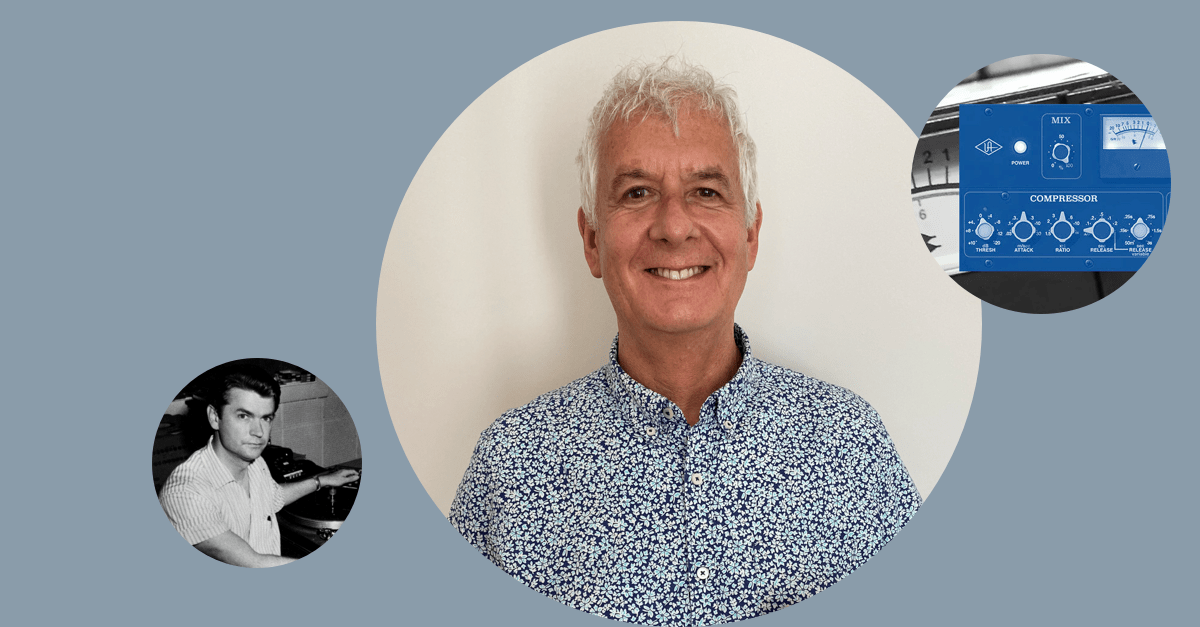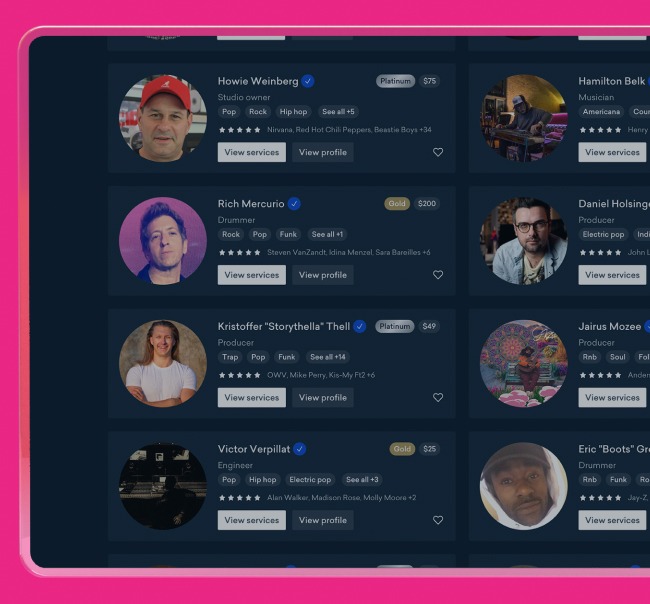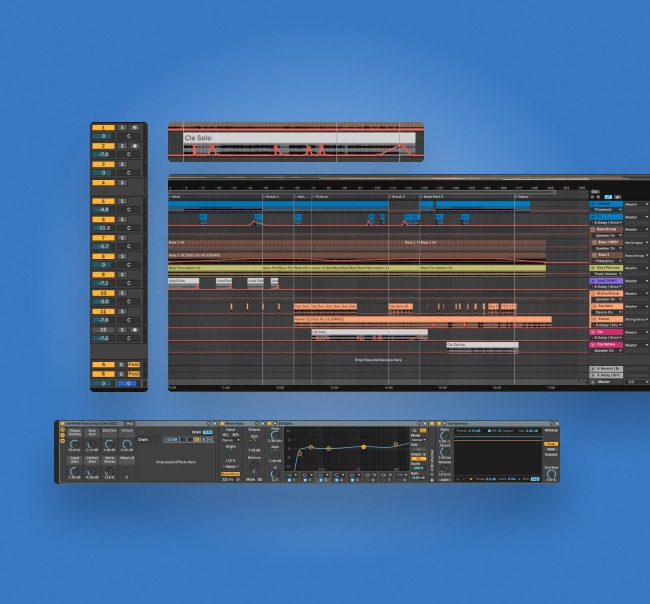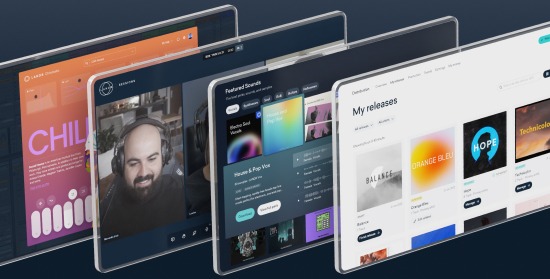What is a Music Producer? Culture Club Producer Steve Levine Explains

Every musical project is the result of a group of collaborators working together.
Even when the artist is the star of the show, there’s always a handful of skilled professionals to support their vision and make it work.
Behind the scenes you’ll find mix engineers, session musicians and most importantly, producers.
But the producer’s role is one of the most frequently misunderstood in music.
One person who knows the producer’s craft inside out is Steve Levine. He’s known as the producer behind Culture Club’s massive 80s singles and the only person other than Brian Wilson to produce the Beach Boys.
We sat down with Steve to talk process, collaboration and the core of the producer’s role.
In this article you’ll learn what a producer is and find out how connecting with one can make a difference in your music.
Let’s get started.
What is a producer in music?
A music producer can have several different roles depending on the genre of music and type of workflow.
In the traditional recording process, a music producer acts in a similar way to the director of a film.
“A film director decides the location, the actors and cameras the same way a music producer chooses the instrumentation, musicians, or recording gear”
They create a vision for the material and advise the musicians artistically on how to achieve it.
During a recording session the producer acts as a coordinator and provides organizational help. They also offer creative input and notes on the musicians’ delivery and the technical choices made by the engineer.
Producers often have skills and experience in all the different phases in the life cycle of a song.
That means that they can make contributions on everything from songwriting details to equipment choices and delivery notes.
After the sessions, the producer provides feedback and direction during the mixing and mastering stages to ensure that the musical vision they’ve created with the artist gets realized.
“Historically, the reason we were called producers rather than directors goes back beginning of rock’n’roll with people like Sam Phillips. The early creators of music acted as studio owner, sound engineer, mastering engineer and the physical producer of the record as well. That’s where the title came from—those very early pioneer rock’n’roll days where the person that ran the session was the central hub.”

What does a producer do in a session?
Facilitating creative relationships is the core of a music producer’s work. Most of it happens during the session itself.
On a recording date, the producer has to organize and direct everyone on the project to keep things running smoothly.
Getting good results from a diverse group of people in a high pressure environment with the clock ticking on an expensive session is an art.
For Levine, the key to success is a solid foundation of good social skills.
Good people skills are what separates the wheat from the chaff. 80% of the job is dealing with people and 20% is the technical part. We can all buy the same gear—to a certain degree—but how we use that gear and how we communicate with artists is what sets successful producers apart.
Maintaining these sometimes delicate interpersonal dynamics while still keeping an eye on the technical details is a balancing act.
At the end of the day, the producer has to deliver solid tracks to the mix engineer to make the project a success.
Every session is unique, but Levine maintains that the most stubborn technical issues a producer encounters are common across many types of music.
Experience, intuition and strong instincts are what it takes to overcome it.
For Levine, that experience is the key ingredient for a successful session.
“Most of the problems that sessions encounter are the same regardless of genre. The same technical problems could happen on a hip-hop track or an indie track on a folk track or even a jazz track. A producer that can manage those problems doesn’t necessarily have to be pigeonholed in one genre.”
“When a session goes smoothly, it’s like a swan gliding across a pond. It takes a lot of experience to get to that level. When things go wrong you start to see how much experience matters.”
An evolving role
The producer’s role continues to evolve with modern developments in music.
In R&B and hip-hop, the term producer most often refers to the person who created the beat the artists are singing or rapping over.
In EDM the words “producer” and “artist” are often used interchangeably, with most artists producing their own material.
Levine has seen these developments first hand as music production work becomes more distributed and accessible.’
“Today it’s not unusual to have a producer that just does the beats or vocals on a track. A studio might produce the backing track with one team of people, a top line would be written and someone else would produce the vocals. And of course in the dance world the producer might have had nothing to do with the original sessions whatsoever. They act as a remixer and could do anything from adding new drum tracks to reinventing the whole thing.”
Collaboration and results
No matter what genre you work in, productive sessions are a team effort.
Bringing out everyone’s best work and playing each collaborator to their strong points is crucial for a producer.
As Levine is quick to note, each contributor has strengths and weaknesses. It’s up to the producer to recognize them and act accordingly.
That mix of factors can make the end result pretty unpredictable. Even with the best intentions and preparation, not every set of collaborators are perfectly matched.
“It’s impossible to be a master of every discipline in music. As a producer, collaboration is still something that I really champion—even if it’s virtual. Someone else can reinterpret your ideas or bring something to the party that you haven’t even thought of. That’s extremely valuable.”
No one sits down and says, “let’s make the worst record we possibly can!” Most people want to create their best work from the start, but so many things can weigh on a project—lack of money, lack of time, lack of talent… “
That’s why connecting with the right people is just as important as any other phase in the development of a song.
Choosing the right producer is no different. LANDR Network connects you with top tier producers who know how to get the job done.
Be adaptable
A great producer has to stay focused on the human element, but there’s no substitute for solid technical skills.
For Levine, the development of technology and music production are deeply intertwined.
But the changes brought about by modern tech aren’t limited to developments like DAWs and VST plugins.
“I’m one of the group of producers who had their success during the massive change in technology in the 1980s. I had to navigate the switch from analog tape machines to digital recording and analog synthesizers to digital synthesizers—with all the processes involved there. Many of the producers of my era grew up with technological change so modern tech is second nature.”

Technology is changing the fabric of collaboration itself, and producers need to be ready.
As more and more work moves online, marketplaces like LANDR Network are carving out a space in the conversation.
“Until now there hasn’t really been a home for professional work online. There are plenty of places where people can exchange ideas, but the quality isn’t always there. I think now the opportunities are much greater.”
For Levine, it’s about creating a hub for trust and quality.
Network is where top tier talent and aspiring artists collide, levelling a playing field that was once restricted by gatekeepers.



